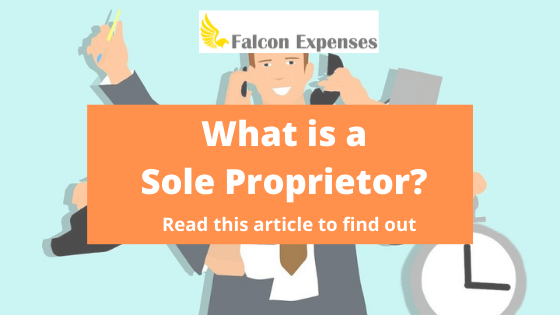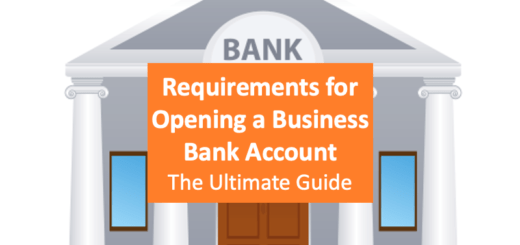What is a Sole Proprietor (How Do I Start One)?
Table of Contents
How do I know if I’m a sole proprietor, and what is required to become a sole proprietorship? Read this article to find out.

A sole proprietorship is the simplest and most common form of a business. It is attractive to freelancers and entrepreneurs. It is a business owned and operated by one individual. Basically, this means there is no distinction between the business and you. In addition, as the sole owner of the business, all of the profits, losses, and liabilities are owned by you as well. Some common titles (or names) for a sole proprietor are:
- Freelancer
- Entrepreneur
- Copywriter
- Independent Contractor
- Self Employed
- Etc.
Do I need to incorporate to be a sole proprietor?
To be a sole proprietor you do not need to incorporate. In addition, there are no forms you need to file out or any formation documents to start work as a sole proprietor. You are automatically considered a sole proprietorship if you’re the only worker. For example, a company hires you are a graphic designer to create a new logo and brand identity for the business.
A sole proprietor can register with the IRS for an EIN (and Employer Identification Number). When you do your taxes, you use your EIN instead of your social security number. However, sole proprietors are not to have an EIN. An EIN is required only if you plan to hire employees, file any excise, or pension plan tax returns. Below are some links to EIN Resources if you need further information on this topic.
EIN Resources
Do I Need an Employer Identification Number (EIN), How Do I Get One?
7 Benefits of an Employer Identification Number
How do I do my taxes as a sole proprietor?
At the end of the year, you attach a completed IRS Schedule C form to your tax return. This form contains your profits and losses from the work you did as a sole proprietor. Below are a number of valuable resources for understanding and completing an IRS Schedule C form. Including in these resources is an article the goes over, in detail, step-by-step how to fill out an IRS Schedule C form.
IRS Schedule C Form Resources
What is an IRS Schedule C Form (and How to Complete It)
Who Needs to File an IRS Schedule C Form
Do sole proprietorships have employees?
Sole proprietors can hire employees. However, if you do that, you will need to get an EIN (Employer Identification Number) if you plan to hire employees other than a contractor.
Also, there are additional risks you are exposed to when you hire employees as a sole proprietor without formal incorporation. As a sole proprietor, there is likely no legal separation between the actions of the organization and the actions of the sole proprietorship. This means that the sole proprietor could be liable for the company’s actions. Don’t take this as legal advice, as we are not lawyers. However, if you do intend on taking on employees or just in general, you should consult a lawyer about this or do your own research. Here is a good place to start: What is the Corporate Veil.
What are some of the advantages of being a sole proprietor?
There are many advantages to being a sole proprietorship. For example, it is easy to form a sole proprietorship. Actually, you don’t need to form anything at all (in most cases). Further, you have complete control. Since you’re the only business owner, you have complete control of your business. Check out this article for a complete overview of the advantages of a sole proprietorship, Sole Proprietorship Advantages.
What is the difference between being a sole proprietorship and an employee?
The most obvious indicator you are hired as a sole proprietor (ie a freelancer or independent contractor) and not an employee is if you’re paying your own social security and medicare taxes. If your employer does not take out these taxes from the paycheck that they give you then you are likely an employee. Check out this resource for detailed information about how to determine if you have been hired as a sole proprietor or an employee, Freelancer vs Employee: How Do I Know Which One I Am?
About Falcon Expenses
Falcon Expenses is a top-rated mobile application for self-employed and small businesses to track expenses and tax deductions. Falcon customers record $6,600, on average, in annual tax deductions. Get started today. The longer you wait the more tax deductions you miss out on.
Automatically track mileage expenses and expenses, keep an odometer log, receipt vault and log billable hours. Quickly organize expenses by time period, project or client and easily prepare reports for email to anyone in PDF or spreadsheet formats, all from your phone. Use for keeping track of tax deductions, reimbursements, taxes, record keeping, and more. Falcon Expenses is great for self-employed, freelancers, realtors, business travelers, truckers, and more.
Was this article helpful?
We are a team of writers and contributors with a passion for creating valuable content for small business owners, self-employed, entrepreneurs, and more.
Feel free to reach out to use as support@falconexpenses.com





